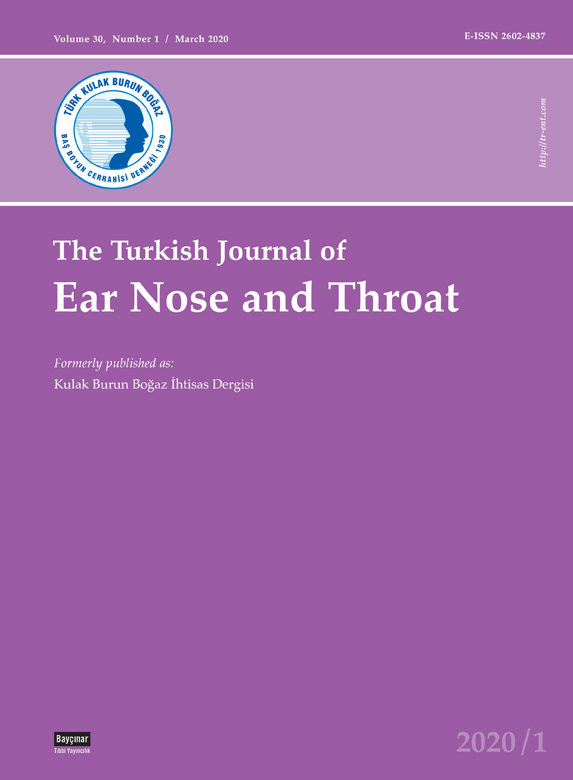
The Turkish Journal of Ear Nose and Throat
Yazarlar: Erol Keleş, Şinasi Yalçın, Vedat Bulut, İrfan Kaygusuz, Turgut Karlıdağ, H. Cengiz Alpay
Konular:-
Anahtar Kelimeler:Allergy,Cytokines/analysis/secretion,ImmunoglobulinE/ blood,Interleukin-4/metabolism,Leukocytes,Mononuclear/cytology/metabolism,Otitis media with effusion/ etiology/immunology,Thelper,Polarization,Thelper cells/ metabolism.
Özet: Objectives: Otitis media with effusion (OME) is one of the major causes of hearing loss in childhood. In this study, the role and the importance of allergy in the etiology of OME was evaluated by questioning the immune system and the cytokines. Patients and Methods: Seventy-eight ears of 59 patients who had gone through myringotomy in our clinic between September 1999 and June 2001 with the diagnosis of OME were included in this study. The serum samples of 26 healthy volunteer children who were in the same age group and were living in the same region while having similar socioeconomic properties were examined as the control group. Results: In this study; the IFN-γ levels were significantly lower; and IL-4 and IgE levels were significantly higher in the serum samples of the patient group when compared with the control group (p<0.05). A positive correlation was found between IL-4 and IgE in the serum samples of patients (p<0.01). However, there were negative correlations between IFN-γ both with IgE and IL-4 levels, that were not statistically significant. Although negative correlations were found between IL-4 and IFN-γ, and between IFN-γ and IgE levels; a positive correlation was found between IL-4 and IgE levels in otitis media with effusion samples, that were not statistically significant. Conclusion: T helper (Th) polarization shows that in the etiology of OME, allergy may have a role. So, in the treatment of OME allergy should be kept in mind.